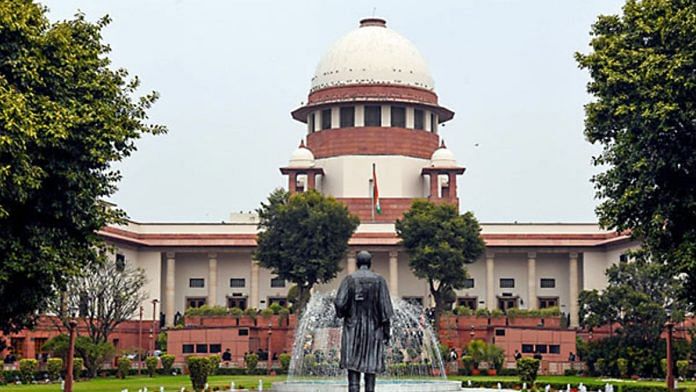New Delhi: The sudden resignation of Election Commissioner (EC) Arun Goel has left Chief Election Commissioner (CEC) Rajiv Kumar as the sole member of the Election Commission of India (ECI), raising concerns about the constitutionality of a single-member commission.
Goel cited “personal reasons” for his resignation ahead of the Lok Sabha elections, but rumours of differences between Goyal and Kumar have been doing the rounds. The election commission lost another member last month when EC Anup Chandra Pandey retired.
Article 324 of the Constitution mandates a CEC but not an EC in the commission while granting the President power to appoint one or more ECs as deemed fit. “The election commission shall consist of the chief election commissioner and such number of other election commissioners, if any, as the President may from time to time fix…,“ the proviso reads.
The Supreme Court judgments in the T.N. Seshan case in 1995 and the S.S. Dhanoa case in 1991 upheld the constitutionality of a single-member election commission while stressing the importance of more than one commissioner. The two judgments, however, differ somewhat on the question of the power of the CEC over and above the ECs.
“Post-Seshan and-Dhanao, it is clear that there is a choice between a multi-member and single-member commission. Even though a single-member commission is legal, it may not be desirable, considering the Dhanao verdict. It is concentration of power in one individual,” said senior advocate Meenakshi Arora.
Also read: Arun Goel’s sudden exit from poll panel & ‘volatile equation’ with political bosses during IAS yrs
T.N. Seshan case
T.N. Seshan, the 10th CEC of the country, approached the SC to quash a 1993 Presidential ordinance, saying it was unconstitutional. The ordinance turned the commission into a multi-member body through the appointments of two election commissioners, apart from CEC Seshan. Sheshan challenged the ordinance, saying it went against settled constitutional questions.
The top court, however, said the ordinance was according to Article 324. “The election commission can, therefore, be a single-member body or a multi-member body if the President considers it necessary to appoint one or more ECs,” it said.
“The scheme of Article 324, therefore, is that there shall be a permanent body to be called the election commission, with a permanent incumbent to be called the CEC,” it added.
The SC also said that nothing in Article 324 suggested an inequality of power within the commission. There was no reason to hold the CEC at a higher position, and the ECs must also have a say in decision-making.
“If the CEC is considered to be superior in the sense that his word is final, he would render the ECs non-functional or ornamental. Such an intention is difficult to cull out from Article 324, nor can we attribute it to the Constitution makers,” the court observed.
At the same time, the top court said it was the duty of the office-bearers to ensure there was no ego clash. “We cannot overlook the fact that when the Constitution makers provided for a multi-member election commission, they were not oblivious of the fact that there may not be agreement on all points, but they must have expected such high-ranking functionaries to resolve their differences in a dignified manner,” it said.
S.S. Dhanoa case
In 1989, the then-President, exercising his powers under Clause 2 of Article 324, fixed the number of ECs at two through a notification. He also appointed S.S. Dhanoa as one of the two ECs through another notification. Months later, the then-President rescinded both notifications and Dhanoa challenged his move in the top court.
The Supreme Court, in its judgment, said the appointment of the CEC is a must but not the appointment of ECs, and the President could abolish the EC posts if he decided there was no work for the ECs or the commission could not function with them.
Noting the difference in power between the CEC and the ECs, the top court also said the CEC should not be removed from his office “except in like manner and on the like grounds as a judge of the Supreme Court”, but such protections do not apply to the ECs.
However, the top court also stressed the importance of more than one commissioner, noting a single commissioner “ill conforms to all tenets of democratic rule”.
“There is no doubt that two heads are better than one, particularly when an institution like the election commission is entrusted with vital functions and is armed with exclusive uncontrolled power to execute them,” it said.
The top court said there is a likelihood that a single individual might sometimes prove capable of withstanding pulls and pressures, which many may not. “However, when vast powers are exercised by an institution, which is accountable to none, it is politic to entrust its affairs to more hands than one. It helps to assure judiciousness and want of arbitrariness,” it added.
Akshat Jain is a student of the National Law University, Delhi, and an intern with ThePrint.
(Edited by Madhurita Goswami)
Also read: Just how staggering is the logistic of conducting Lok Sabha election in India? 1st to 18th



